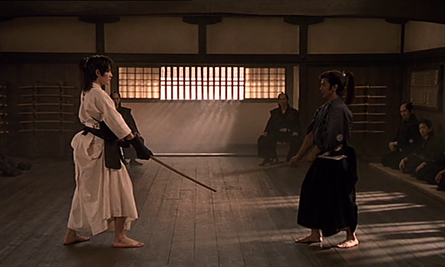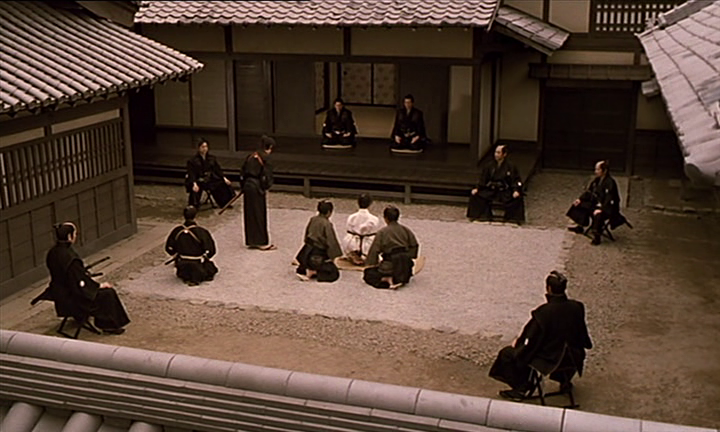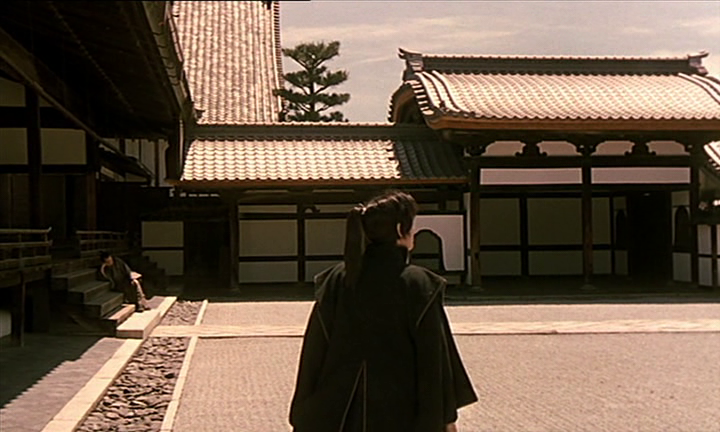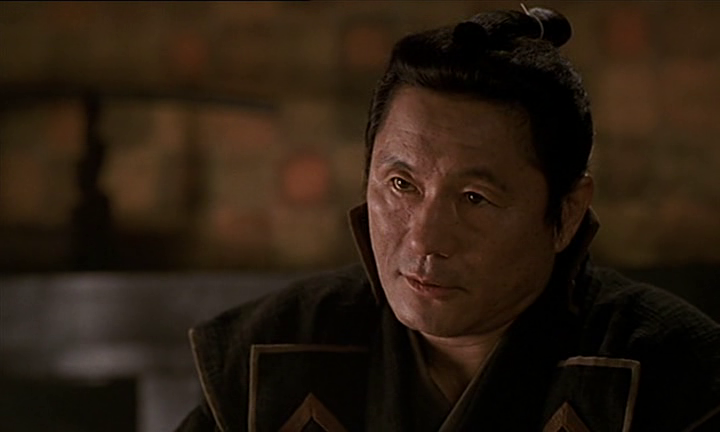 Nagisa Oshima's Taboo was the legendary filmmaker's final directorial effort, a deeply flawed, but beautiful looking film that is part murder-mystery, part samurai story. Set in Kyoto in 1865, Taboo focuses on a significant part in Japanese history where their 300-year-long self-imposed isolation was coming to an abrupt end. With their traditions and control threatened, the Samurai mobilized throughout the country to fight this new-found foreign encroachment. The film begins with one of these Samurai groups, the Shinsengumi, auditioning new recruits. Two men are chosen above the rest, Tashiro, a rugged typical looking man, and Kano, an effeminate young man whose long wavy hair only exemplify his feminine features. While Kano is an excellent fighter, Captain Hijikata fears that he lacks toughness and resolve, ordering Kano to perform an execution, which he does with blood-thirsty resolve. As the two new recruits, Tashiro and Kano, begin to become close, Captain Hijikata suspects that something beyond mutual male appreciation may be afoot, and when another Samarui ends up mysteriously murdered, both Tashiro and Kano become suspects. Nagisa Oshima's Taboo is a revisionist samurai epic which uses the stringent code of the samurai to deconstruct machismo. In Taboo, the samurai's code of honor and stringent social restriction is used as a device, with Taboo being an evocation of the perceptions men have of strength and toughness, as Kano, one of the most skilled, dangerous Samurai in the entire group is very effeminate. Through this narrative it becomes clear that Kano is a hostile, violent presence, but his looks give him the edge in being able to frame Toshiro for the death of another Samurai, with Kano not fitting the typical perceptions of machismo. The juxtaposition of the murder mystery elements with that of hidden homosexuality is one of Taboo's more interesting elements, exhibiting the dark secrets which lurk behind every every character. Change is subtly amidst throughout this narrative, with Oshima essentially trumpeting the horn for the need to throw out our preconceived perceptions of masculinity, with the story of Toshiro and Kano being one of tragedy where these misconceptions led to the death and betrayal of a good man in Toshiro. The ending is probably the strongest scene in the entire film, with Captain Hijikata recognizing the error of his ways, understanding that Tashiro was a good man, whose love and desire for Kano led to his doom. The big problem with Taboo is that it simply comes off awfully ham-fisted in its intentions at times, feeling cheesy, overly serious, and at times, even hard to watch. I'd be lying if I didn't find myself rolling my eyes at some of the early scenes of the film, with Oshima's juxtaposition of the violent world of samurai and forbidden eroticism simply coming off as self-serious and overbearing. The one aspect of the film that does stand up to Oshima's high standard, at least for the most part, is the visual aspect, with the finale in particularly being a borderline surrealistic treat, featuring rich atmosphere and impressionistic photography. A strange blend of samurai film, murder mystery, and homosexual love story, Taboo is without question Nagisa Oshima's weakest film I've seen, which isn't particularly insulting when given the filmmaker's impressive canon.
0 Comments
Leave a Reply. |
AuthorLove of all things cinema brought me here. Archives
June 2023
|



 RSS Feed
RSS Feed
